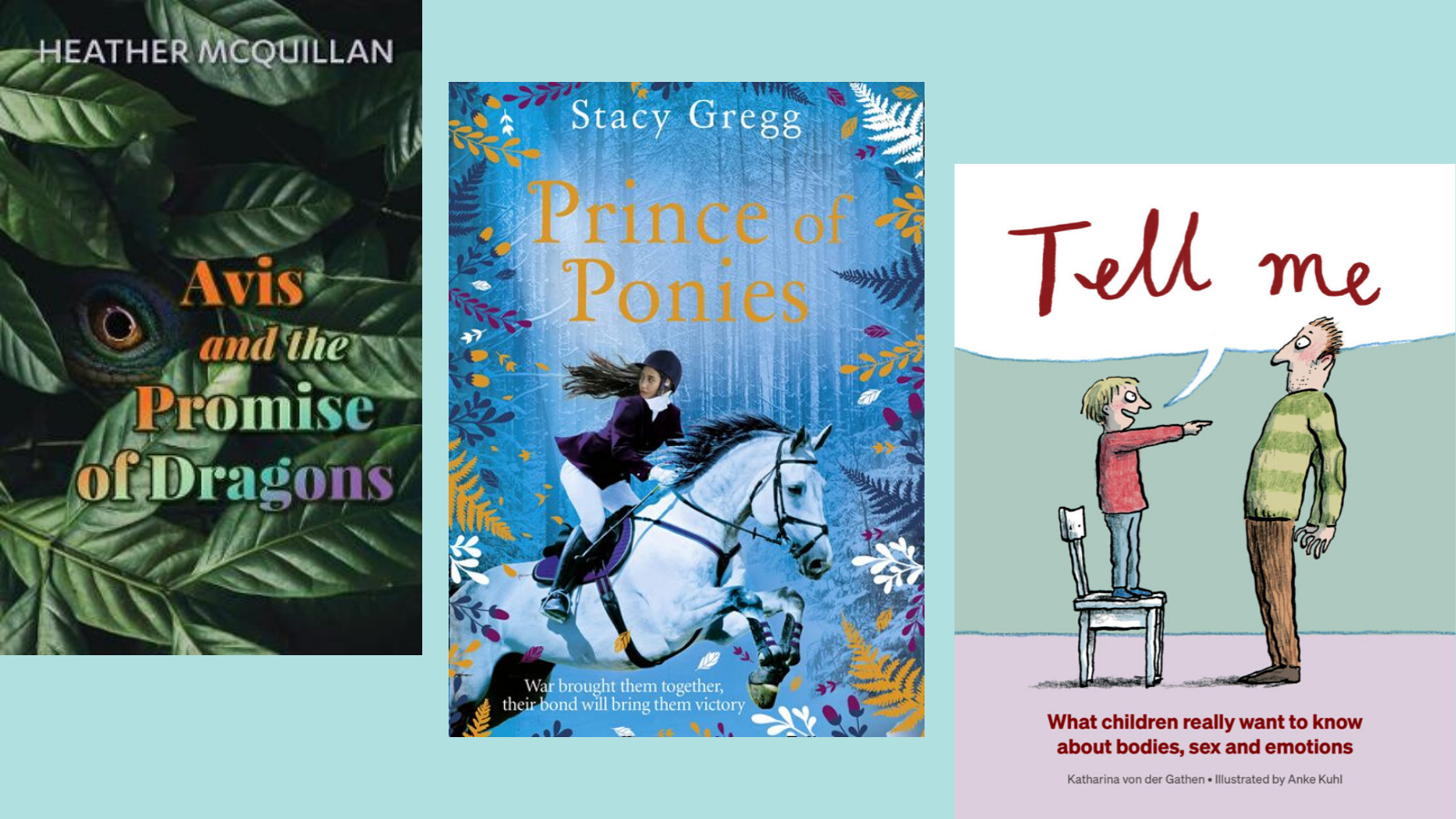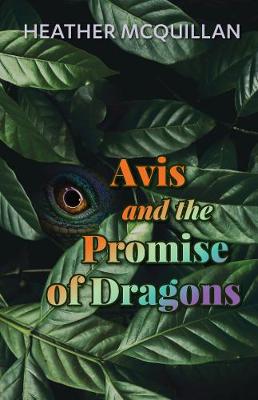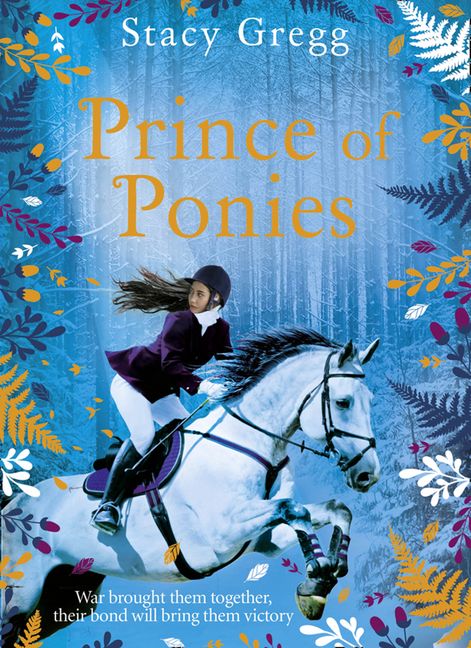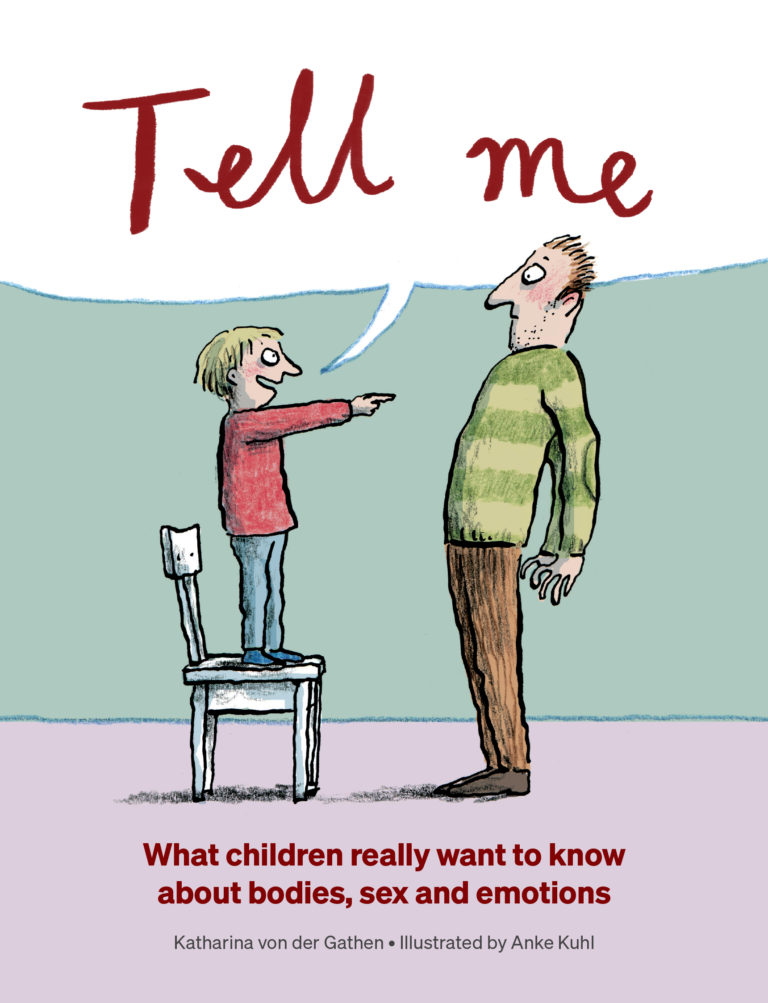Rachel Moore has read and reviewed three new books for the middle grade space – two excellent chapter books and a fabulous new non-fiction title full of answers to all manner of curly body-related questions.

Avis and the Promise of Dragons, by Heather McQuillan (Ahoy!)
This is a fast-paced junior novel that does a lot more than meets the eye. On the surface this is a fantasy novel, about a young girl who takes on a pet-sitting job and ends up minding dragons. However, McQuillan has written a much more nuanced story than this.
Avis, our hero, is the victim of a bully at school and dealing with aftermath of the very public separation of her parents at home. Given the opportunity to pet-sit for a weekend by the neighbourhood ‘witch’, she leaps at the opportunity to work with animals. Only nothing is what it seems at face value, and Avis finds herself struggling to manage.
Only nothing is what it seems at face value, and Avis finds herself struggling to manage.
This is an exciting story, which covers themes of truth and integrity, secrets and promises, bullying, families in crisis, and the media/social media. It is very deliberately set in New Zealand, which is a refreshing change given how many New Zealand authors set their stories ‘anywhere’ to extend their potential market. All young readers are interested in the wider world, so let them read stories about other places, I say – and for Kiwi kids, it’s great to have a story set in their backyard. This book will be enjoyed by readers aged nine and over.

Prince of Ponies by Stacy Gregg (HarperCollins)
This is another book that contains multitudes. Switching between modern-day Berlin and both Poland and Germany during World War II, this is the story of two courageous girls and the horses they love and protect. In addition to courage, the story touches on themes of the nature of good and evil, racism, bullying, resilience and grit. I feel that’s important to give a reader advisory here: there is a brutal incident of racism and bullying set in a modern-day playground that is effectively a schoolyard version of waterboarding. It’s graphic and shocking – it’s something that I think younger readers should discuss with an adult, and at the very least adults should understand what their children are reading.
Please don’t let this advisory put you off reading or gifting this book, it’s a cracking good read. It’s just brutal at times – so is racism, and so is war. Telling the parallel stories of Zofia, whose comfortable life in a Polish village is forever changed by the German invasion in 1939, and Mira, a Syrian refugee whose family is trying to make a new life in Berlin in 2019, Prince of Ponies follows the girls as they find courage and hope in the face of adversity through two special horses.
…it’s a cracking good read. It’s just brutal at times – so is racism, and so is war.
Zofia and Prince of Poland, a Polish-bred Arabian stallion save each other as they negotiate the complicated world of Nazi-controlled Poland, particularly during the final days of the war. Mira finds Emir of Poland by accident while out walking a dog; learning how to ride him gives her the courage to survive the vicious bullying she receives at school, as well as sparking her hidden talents.
The great thing about Gregg’s writing is that you don’t have to be a horse lover to enjoy her books. They’re much richer than a simple story about a horse, and while the relationship between human and horse is what drives the story, the reader (especially the ‘non-horsey’ reader) doesn’t drown in a whole lot of horse minutiae.
Mature readers ten years and over will enjoy Prince of Ponies. I think it’s important that their adults are aware that they are reading something that may disturb or worry them and be open to discussing the story together.

And now for something completely different…
Tell Me by Katharina von der Gathen and Anke Kuhl (Gecko Press)
Tell Me is a great book for families to have on the shelf for children undergoing their journey through puberty. It is comprehensive and has been updated for this English language version (originally published in 2014 in German) with an additional question and answer about LGBT.
The 99 questions in the book are very similar to the ones that Year 7 and 8 children at my school ask their teachers when learning about puberty. They range from questions about hormones and body changes, to gender diversity and sexual orientation, to questions about mechanics and consent. The answers are calm, factual and neutral – there are no agendas here. The answers are a perfect starting point for adult family members and children to have conversations – no book should ever be left to do this job in isolation, as any book will raise further questions. The answers are far better coming from a trusted adult than independent internet searches!
The answers are calm, factual and neutral – there are no agendas here.
The illustrations are gentle and often humorous without being childish or silly. They add another layer of understanding to the questions and answers and help take some of the potential awkwardness out of the content matter.
As a parent and teacher, the only thing I felt needed more emphasis was consent. It is in the book, but I would have liked it to have its own question and answer, aside from ‘What is rape?’, as consent applies to more situations. This may be due to my own heightened awareness after #metoo made global headlines in 2017, which Tell Me pre-dates; regardless, it’s an essential message that all our children need to really understand.
Tell Me belongs on family bookshelves, where it can be brought out to answer questions and for discussions. It might even teach adults a thing or two!

Tell Me
by Katharina von der Gathen
Illustrated by Anke Kuhl
Translated by Shelley Tanaka
Gecko Press
RRP $29.99

Rachel Moore
Rachel Moore is a experienced primary school teacher who lives on the Kapiti Coast. Some of her earliest memories are of bed time stories read with her dad, and she has made it her mission to try to pass on her love of books to every child she meets. Her childhood literary heroes are Jo March, Lucy Pevensie, Matilda Wormwood and Elizabeth Bennet. When she grows up, Rachel hopes she'll be able to live in a house big enough for all her books.



